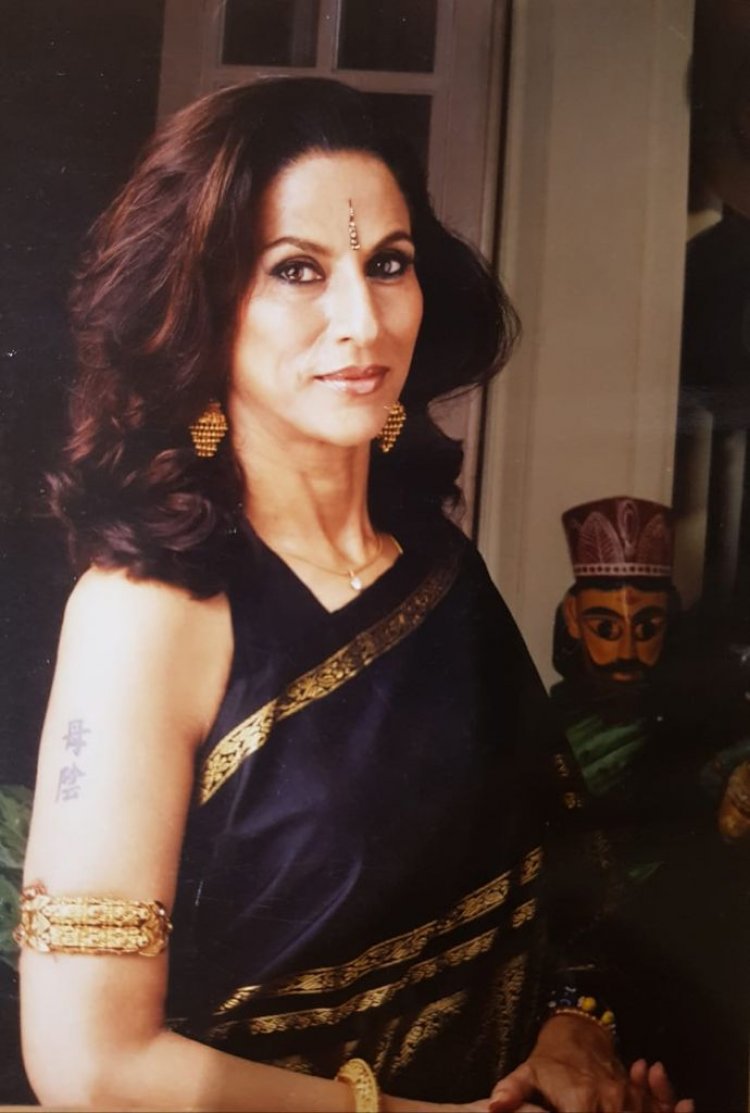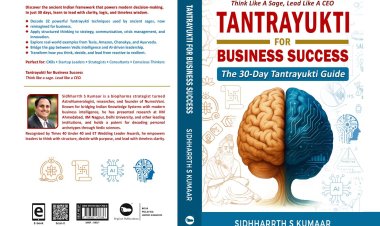DE’finitely … two good!
Ms. Shobhaa De’ has never refrained from declaring her express fondness for Shabana Azmi and the late Smita Patil. The former was her schoolmate; the latter, confessedly, was the one actress who “impressed” her the “most.” Ajit Ramachanddran gets the author & columnist to limn the frontliners of parallel cinema

DE’finitely … two good!
Ms. Shobhaa De’ has never refrained from declaring her express fondness for Shabana Azmi and the late Smita Patil. The former was her schoolmate; the latter, confessedly, was the one actress who “impressed” her the “most.”
Ajit Ramachanddran gets the author & columnist to limn the frontliners of parallel cinema
At her swanky high-rise in suburban Mumbai, Ms. Shobhaa De’ is in her element, multi-tasking with facility - issuing instructions to her house –staff; adjusting a floral arrangement to perfection; reeling off her comment to a byte-hungry channel reporter, and more.Minutes later De’ flops down on a sofa, flashing unnerving charm that is never in deficit, even as she readies to swiftly green-light this interface.
“I’d love to talk about Shabana and Smita,” says De’ smilingly in a voice that must easily rank among the sexiest ones – this side of the Suez Canal – in addition to displaying markedly white pearlies that Colgate might want to capitalise upon.
Her pupils, golden honey orbs – that can seethe and soothe with equal facility – mellow over in a dramatic manner as she holds forth on the two actresses: Azmi and Patil, whose memory in collective consciousness is so inextricably intertwined that one cannot be spoken about without any mention of the other. Presenting, excerpts from the inter-phew…
Viewpoint # 1: “My relationship with Shabana is very different from what it was with Smita. All through their careers, Shabana and Smita were constantly compared and tormented, and I think it was very unfair to both of them. Although both were fabulous as regards their talent, they were different in the sense that Smita was very blasé about her success which I do think is fantastic! Smita took her work seriously, she didn’t take herself very seriously. Maybe, Smita would have reached very different heights, if she had the same level of focussed ambition as some of her contemporaries. Their equation is much like the famed rivalry between the music composers Mozart and Salieri who were always pitted against one another.”
Viewpoint # 2: “The late Satyajit Ray had spoken of Shabana as ‘the most dramatic actress in Indian cinema.’ And now, you’re asking me to comment as to who… I think… is the more dramatic actress between Shabana and Smita? Well, this is a genius giving a very informed opinion and one can never challenge it. I would never dare to challenge Ray!”
Viewpoint # 3: “Shabana has her many, many strengths and talents. And Smita had hers. Shabana was a junior at school. I’ve seen her grow and evolve and I’m very, very proud of her. Very few people know that Shabana, even if she chose to today, could be a great singer. She has a fantastic singing voice and she sings just wonderfully well. Shabana could be a writer, she could be anything! Smita too was very much like that. She was multi-talented, but didn’t pursue any of her other passions with quite the same zeal.”
Viewpoint # 4: “The Maharashtrian bond between Smita and me was very powerful. I liked her free-spiritedness. She really didn’t give a damn! Smita came with no filters. She was an excellent photographer, specialising in black-and-white and was great with portraiture. In all of this, of course, we had Gautam Rajadhyaksha as a photographer and brother. She was also a terrific bike-rider. I’ve watched Smita on bikes, but I never rode pillion on a bike with her unfortunately. We had planned a long road trip together, but eventually that never happened at all. She loved smoking beedis, but I didn’t because I found smoking really foul! Smita wasn’t attached to money and she was exceptionally generous. She wasn’t interested in owning the finest Paithani saris or wonderful jewellery or any material possessions, for that matter. None of it attracted her. Money didn’t matter to Smita, in the sense that for her, it was merely a means to something immediate.”

 Ajit Ramachanddran
Ajit Ramachanddran 




























